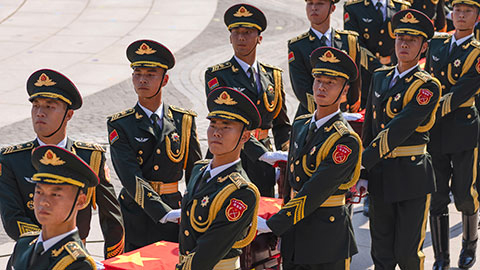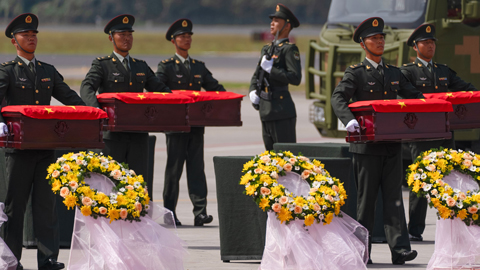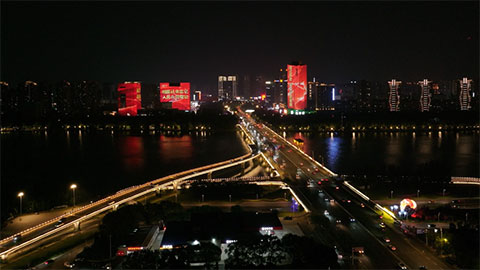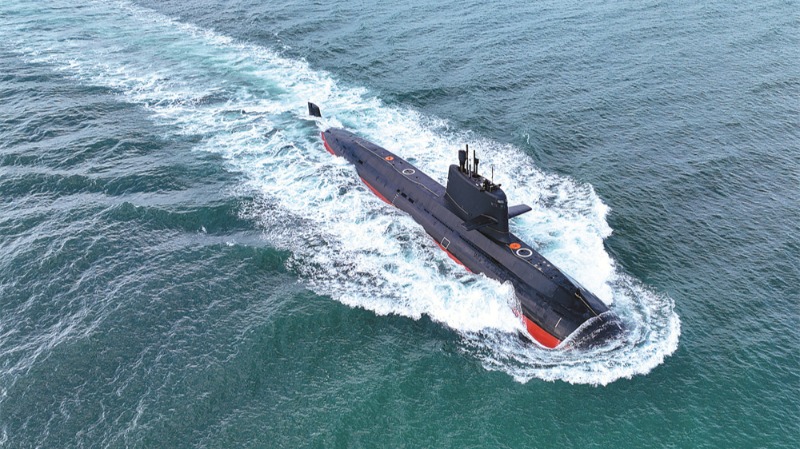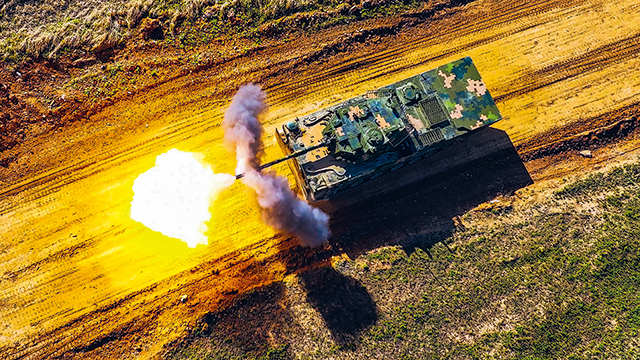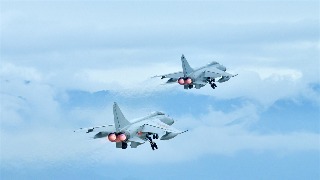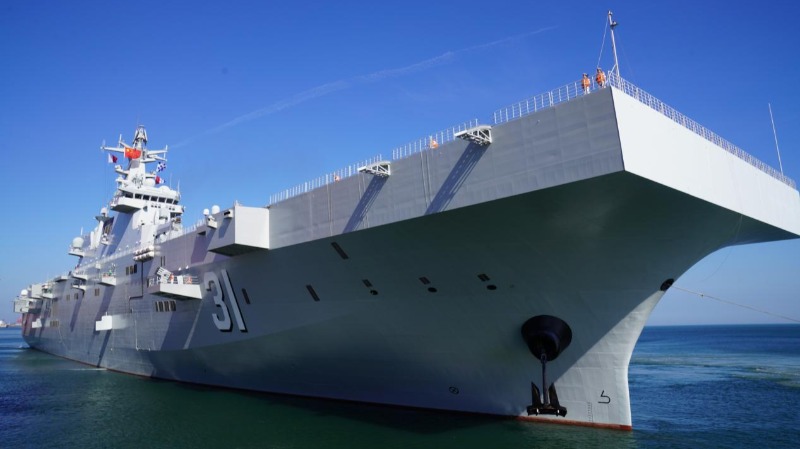By Hai Jing and Gao Hongjie
German Chancellor Olaf Scholz recently said that NATO is stepping up military deployments on its east wing to effectively deter Russia. Media reports say that NATO's leadership is in negotiations about creating a trans-European military corridor within the "military Schengen" framework, and the results may be announced before the NATO Summit is held in July.
The "military Schengen" refers to an area where NATO's military forces can move freely, something like the EU's "Schengen area", a passport-free travel zone. In 2017, NATO put forth the "military Schengen" initiative to streamline and standardize cross-border military transport procedures and clear the physical, legal, administrative and regulatory obstacles that obstruct its military operations across Europe. With such a "military Schengen" area, the organization will be able to deploy armed forces, weapons and equipment to the front more efficiently and speedily in case of a crisis.
The news coverage on this topic from Western media mostly blames Russia's military actions against Ukraine for impelling Europe and the US to expedite the establishment of this special mechanism. However, some media outlets, having combed through the historical background, argued that the formation of the "military Schengen" is associated with NATO's constant eastern expansion. After the end of the Cold War, NATO has kept extending its eastern boundary through multiple rounds of expansion, making the deployment of troops and supply of ammunition and supplies to the front line more complicated. Meanwhile, the lack of uniformity in the border control measures among various European countries and the inadaptability of their infrastructure to wartime needs have also hindered NATO's military mobility. For this reason, the US seized the opportunity of the Russia-Ukraine conflict to hype up the Russia threat within NATO, stressing that the ability to rapidly deploy and mobilize troops is of great significance for effective defense and deterrence.
Against such a background, the topic of creating a "military Schengen" has gained renewed attention in Europe. In late January this year, Germany, the Netherlands and Poland signed an agreement to build a military transport corridor among themselves to enhance the military mobility of the whole Europe. The corridor, said Siemtje Möller, Parliamentary State Secretary at Germany's Federal Ministry of Defense, leads Europe to a real "military Schengen". Starting from March this year, the US, the master brain behind NATO, has been pushing Denmark, Norway, Sweden and Finland to join the military zone so as to facilitate US armed troops in deploying air defense systems and building military facilities in these countries around the North Pole.
NATO's eagerness to form a "military Schengen" reflects the complexity of the current security situation in Europe. As the Russia-Ukraine conflict lingers on, European countries get increasingly anxious about their security and become more proactive in defense development, quickening Europe's steps of "re-militarization". In such a context, there are ever louder calls for a "military Schengen". In the meantime, the US is happy to see Europe share part of the defense responsibilities and therefore supports NATO in building the military zone as an important move to escalate the deterrence against Russia.
However, European countries' wish to relieve their security anxieties by forming the "military Schengen" may turn out counterproductive. For one thing, such an area will aggravate the tension between Europe and Russia and consequently fuel up the already strained regional and global security situation. Moscow has made it clear that if "military Schengen" became a reality, it would respond accordingly. For another, streamlining or simply cancelling the procedures needed to obtain approval for mobilizing troops will enable foreign troops to get in and out of any European country with much greater freedom, which will undermine the sovereignty security of the European countries. At that time, the number of foreign countries allowed, the duration of stay, and many other specific matters will all become hard to control. Once a conflict or war broke out, the freedom of military mobility would easily implicate countries that wished to remain neutral. As analysts said, joining the "military Schengen" is more of a security risk than a security guarantee.







